sense of smell

Eating When Already Full? Study Finds That Brain Circuits Involving Sense of Smell, Behavior Motivation Could Explain Why

Nerve Block Injection Shows Promise in Easing Parosmia for Long-COVID Patients, Study Reveals
![Odor Influences How Humans Perceive Colors; Unconscious 'Crossmodal Association' Affects Our Sense of Smell, Perception [Study]](https://1721181113.rsc.cdn77.org/data/images/full/49409/odor-influences-how-humans-perceive-colors-unconscious-crossmodal-association-affects-our-sense-of-smell-perception-study.jpg?w=237&h=131)
Odor Influences How Humans Perceive Colors; Unconscious ‘Crossmodal Association’ Affects Our Sense of Smell, Perception [Study]

Can Birds Smell? Avian Olfaction Might Be as Important as It Is To Fish and Mammals
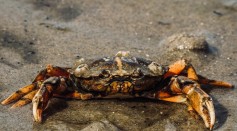
Dungeness Crabs Are Losing Their Sense of Smell Due to Climate Change, New Study Reveals; Findings Partially Explain Their Population Decline
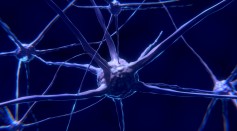
Can Threat Be Smelled? Study Reveals How Olfactory Neurons Learn To Identify the Scent of Potential Danger

Parkinson's Disease Detected by Woman Through Sense of Smell; Can Odor Also Identify Cancer, Diabetes?
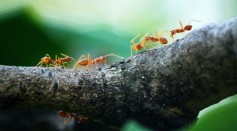
Ants May Soon Help Hospitals with Early Detection of Cancer in Humans, New Study Reveals

Humans' Sense of Smell Degrades Due To Mutation in Scent Receptors Causing Less Sensitivity To Body Odor
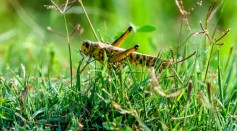
Consistent Smell of Objects Regardless of External Factors Explained Through Neural Response in Locusts

COVID-19 Survivor Shares How Parosmia Distorts Smell and Taste in New TikTok Video
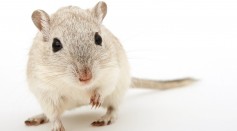
Evolution of Mammalian Face: How Did Mammals Develop Flexible Noses That Gave Them Strong Sense of Smell?
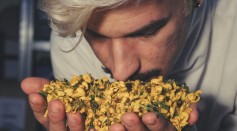
Sense of Smell: Study Reveals How It Can Effectively Help Detect Danger Within the Vicinity
![Poor Sense Of Smell Linked to 50% Chances of Having Pneumonia [STUDY]](https://1721181113.rsc.cdn77.org/data/images/full/33530/poor-sense-of-smell-linked-to-50-chances-of-having-pneumonia-study.jpg?w=237&h=131)
COVID-19 Anosmia Cure: Vitamin A Nasal Spray, Drops Could Help You Get Back Your Sense of Smell
Most Popular

How Technology Is Changing the Real Estate Industry?

Study Reveals High Turnover in Scientific Research Careers: What This Means for Future Scientists

How a Plant-Based Diet Can Protect Against Breast Cancer: Insights from Nutrition Research

Practical Steps to Future-Proof Your Money to Create Financial Security






